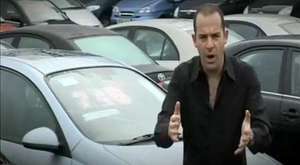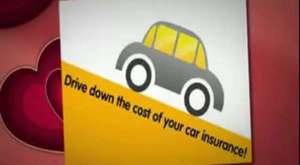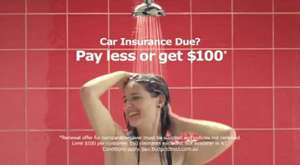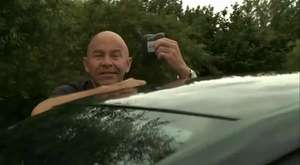Free Tip On Lower Car Insurance
What type of policy to choose
Reduce your risk, reduce your cost
Further tips and tricks
Related Articles / Discussion
Even we can't make this dirt cheap
Even we can't make this dirt cheap
First read the main Cheapest Car Insurance article
Comprehensive or Third party? What to choose
There are three types of insurance to choose from and you should consider all the options to get the right type. Also, once you've chosen make sure you check your policy carefully, so you know exactly what you are and aren't covered for in the event of a claim.
Third Party
The minimum level of cover you need to legally be able to drive on the roads is called 'Third Party'. It used to be the cheapest type of insurance but now bizarrely fully comprehensive policies can often be cheaper. Never assuem one costs less than the other; quote both.
Third Party covers you for any damage you cause to another person's vehicle and protection for any passengers in your car.
Therefore, if you are in an accident and it is your fault, you will have to pay for any repairs to your own car yourself, as your insurance won't cover it. It's more expensive because it's assumed you care less about your car and are therefore more likely to have an accident.
It’s generally the most suitable for those…
With cars worth less than £1000
Aged under 25
Without a no-claims bonus
Or living in a high risk area
Third Party Fire and Theft
Third party fire and theft has the same level of cover as third party insurance. However, self evidently, it also has the additional cover of assistance if your car is stolen or is set on fire.
Fully Comprehensive
This is the widest level of cover but can be the cheapest. The big advantage is if you have an accident and it was your fault you will be able to claim the cost of repairing your own car, and cover personal injury costs, as well as those of the other drivers.
The cover also includes accidental damage and vandalism, for example if somebody causes damage to your car when it is parked in the street and they then drive off. Plus you'll usually (though not always, so do check your policy details carefully) be able to drive other people's cars if you have their permission, although this is likely to be only be Third Party. Sometimes you'll be covered for driving hire cars too.
Fully Comp is a good idea if your car is worth more than £1,500 and gets more important the more valuable you car is. Many insurers will only offer fully comprehensive cover for higher value cars anyway.
There are a few ways of cutting the cost of fully-comprehensive cover, Tesco Value insurance offers a comprehensive policy but limits the repairs to garages it has relationships with, which lowers the cost. However this doesn’t automatically make it cheapest, ensure you first use the comparison sites in the Cheapest Car Insurance article to check.
Don’t think third party’s cheaper than comprehensive
Counter logically lesser third-party policies often cost more than fully-comp.
Why? Car insurance rates are set by actuaries, whose job is to calculate risk. And it’s likely third-party buyers are on average a higher-risk group, perhaps as overall they care less about their cars, and so prices are pushed up. To illustrate this in one low risk driver quote, we found £290 for fully-comp compared to £406 third-party.
Yet this isn’t a hard rule, third-party can win, but for price’s sake always check comprehensive out too, use the main Cheap Car Insurance guide to compare.
Reduce your risk, reduce your cost
Every application for car insurance is different. Each insurer’s price depend on two things, first the underwriters assessment of your particular risk focus and then the pricing model which dictates what type of customers the insurer wants to attract.
Therefore by reducing an insurer’s perception of your risk you can reduce the price you’ll pay. There are of course many factors you either can’t change or can’t change easily … age, gender, where you live and driving history. Yet there are things you can have control over:
Park and drive carefully
Theft and accidental damage add a bulk to insurance costs. If you leave your car in a garage or driveway it’s a big deterrent to theft and means accidental damage is less likely, resulting in a 3% - 7% drop in insurance costs.
And of course the more points on your licence the higher the cost. While speeding points remain on your licence for four years insurers check for convictions during the last five before they are removed from your record.
One speeding conviction may only affect the price of cover by around 5% but any more’ll bump up the price, with two offences costing around 20% more. Being caught with a mobile phone is more serious and can double your quote!
Add a second person to an under-25s / high risk drivers insurance
Insuring someone aged under 25 can cost a fortune. Yet by adding a second driver with a good record to the insurance, even if they won't use the car often, it can smooth out the average risk and sometimes reduce the premium. It won't always work, but it’s worth playing with quotes to check.
However at no point should you add your name as the main driver on a younger driver’s policy instead of them. This is known in the industry as fronting and is fraud. When you come to claim, this will often be checked out and your insurance will be invalidated.
Pick a car
The combination of car, engine size and value all impact car insurance cost. It’s worth considering this when you buy; a big super-powerful 4 by 4 for a 17 year old would cost enough to make Bill Gates balk.
Fit a security device
Any extra security will help, fitting an alarm or immobilizer (especially one approved by Thatcham) will reduce the bill substantially.
Don’t modify your car
The more changes you make to your car, barring security ones, the more you’ll be charged. Always make sure you inform your insurer of any modifications to your car, whether you made them or not, or it may invalidate your policy. A modification is anything that is not part of the standard vehicle specification including factory fitted optional extras, such as alloy wheels.
Reduce your mileage
The less you drive, the cheaper your insurance will be. Where possible try and reduce your mileage. This may sound trite, but actually the real key is incorporating the extra insurance cost when you make long journeys not just the cost of petrol compared to taking the bus or train (also read Cheap Trains article). If you drive your vehicle on business, always declare this rather than just include the business miles as personal, or the policy may be void.
Inform your insurer of any changes in circumstances
This is crucial as it reduces potential problems in the event of a claim; even if it’s just your address. Trying to get insurance after you've had a policy cancelled due to a fraudulent claim is very difficult, very expensive and will follow you for the rest of your life.
A change in circumstances includes moving jobs, as insurers beleive this can affect your risk. Scandalously, the unemployed often (though not always) pay higher rates for their car insurance, so do inform your provider if you're out of work but also check to see if it’s worth cancelling and moving elsewhere, as you don’t need to be at renewal to change insurer.
If you’ve read these tips and thought, “it’s be quite easy to lie about this”, then of course you’re right. Yet lying on your insurance form is fraud. It can lead to your insurance being invalidated and in the worst case a criminal prosecution for driving without insurance. Don’t do it.
Tips and tricks for lowering car insurance costs
If you’re trying to finesse the lowest price, there are a few more things to watch out for. Car insurance marketing is clever. Its aim is to make you feel you’re getting the best deal but to maximise the insurer’s profit at the same time.
Get a ‘new’ quote from your existing insurer
Often applying to your existing insurer as a new customer produces a cheaper price than its renewal quote. Insurers put out more competitive prices to attract new customers so simply start again and you could be better off.
Consider how much you’d really claim for?
It's worth considering going for a policy with a higher excess (the amount of any claim you need to pay yourself). Many people will find that claiming for less than £500 worth of damage both increases the future cost of insurance and can invalidate no-claims bonuses, meaning it’s not always worth making a claim.
So why pay extra for a lower excess? A few policies will substantially reduce premiums for a £1,000 excess, so try this when getting quotes. Of course the one downside with this is if you have a bigger claim you’ll have to shell out more, but often it’s a good balance of the risks.
Drive someone else’s car on your insurance
If you have fully comprehensive insurance then often, although not always, it includes what’s called ‘driving other cars’ cover. This provides you with Third Party cover whilst reducing your mileage and therefore the cost of your own policy.
New car, free insurance
Buy a new car and it may include free insurance for a few years. While this is only worth a few hundred a year to an experienced driver, to a young car owner it could be worth thousands and is well worth taking into account when you add up overall costs.
New Driver? Take an additional driving course
PassPlus is a Driving Standards Agency course aimed at helping new drivers (within 12 months of passing their test) become more confident on the road. There are six modules; town driving, all-weather driving, driving out of town, night driving, driving on dual carriageways and driving on motorways.
The cost of the course is around £200 but varies depending on where you live and the instructor or driving school you choose. Yet many local councils offer discounts of up to 50%, usually for those under 25, and in Wales it only costs £20 (check if your council is taking part).
Once you have the certificate some insurers then discount the price of your insurance but but as there are not many there’s a high chance you can get cheaper cover elsewhere.























